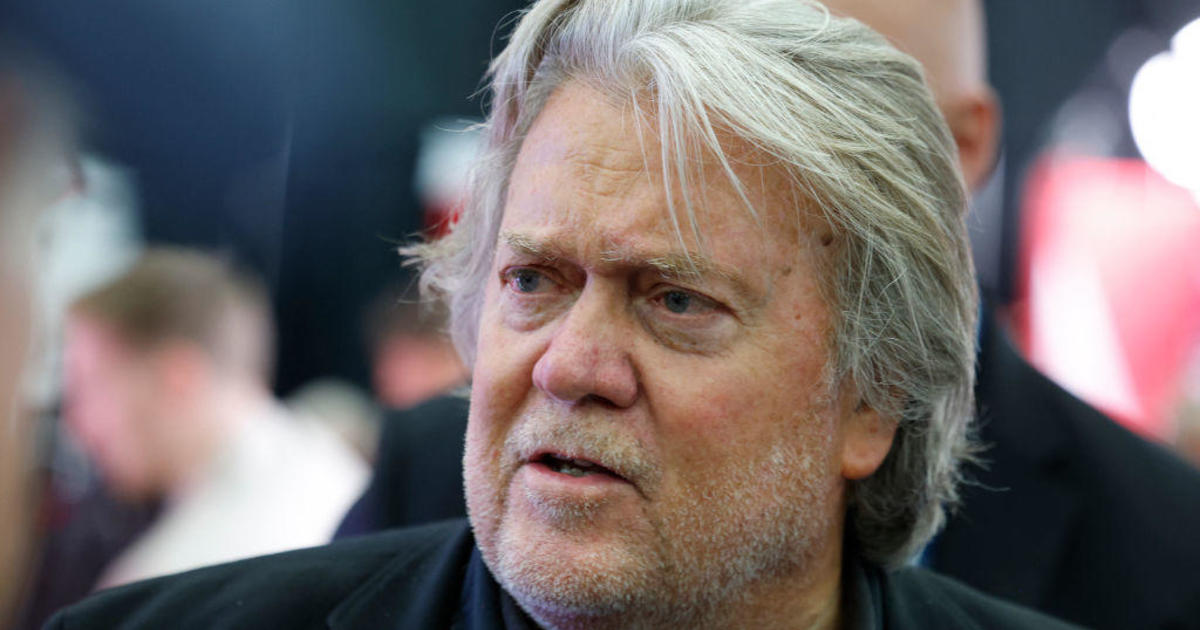A federal appeals court panel on Thursday rejected Steve Bannon’s bid to stay out of prison while he fights his conviction for defying a subpoena from the House committee that investigated the U.S. Capitol attack. Bannon, a longtime ally of former President Donald Trump, is now expected to report to prison by July 1 to begin serving his four-month sentence for contempt of Congress.
The decision was made by a three-judge panel of the U.S. Court of Appeals for the D.C. Circuit, which upheld Bannon’s conviction last month. U.S. District Judge Carl Nichols, who was nominated to the bench by Trump, had earlier granted prosecutors’ request to send Bannon to prison after the appeals court ruling.
Bannon’s lawyers had asked the appeals court to allow him to remain free while he continues to appeal his conviction, potentially up to the Supreme Court. However, in a 2-1 vote, the D.C. Circuit panel determined that Bannon should begin serving his sentence after conviction, citing the general rule for defendants.
Two of the judges on the panel, Cornelia Pillard and Bradley Garcia, voted to send Bannon to prison, while Judge Justin Walker dissented, arguing that Bannon should not have to serve time before the Supreme Court decides on his case.
Bannon is expected to appeal to the Supreme Court in an attempt to delay his prison sentence. His attorneys have not yet responded to requests for comment following the latest ruling.
The charges against Bannon stem from his refusal to comply with a subpoena from the House committee investigating the January 6th Capitol attack. He was convicted nearly two years ago on two counts of contempt of Congress for failing to appear for a deposition and for withholding documents related to his involvement in efforts to overturn the 2020 presidential election results.
During the trial, Bannon’s lawyer argued that he was engaged in negotiations with the committee and believed he was unable to testify or produce documents due to Trump invoking executive privilege. Bannon’s legal team maintains that the case raises significant legal questions that may need to be resolved by the Supreme Court.
In court filings, Bannon’s lawyers also argued that there is a “strong public interest” in allowing him to remain free leading up to the 2024 election, as he is a top adviser to Trump’s campaign. Prosecutors, however, countered that Bannon’s role in political discourse is irrelevant and that equal justice under the law requires his detention.
Another Trump aide, Peter Navarro, is already serving a four-month prison sentence for contempt of Congress. Navarro, like Bannon, cited Trump’s executive privilege as a reason for not cooperating with the committee. The judge in Navarro’s case, however, ruled that he could not use that argument in his defense.
The House committee’s final report on the January 6th attack concluded that Trump had engaged in a “multi-part conspiracy” to overturn the election results and failed to take action to stop the violence at the Capitol. The report marked the end of an 18-month investigation into the events of that day and Trump’s role in inciting the insurrection.
As Bannon prepares to begin his prison sentence, the legal battle surrounding his conviction is likely to continue, with the possibility of further appeals to the Supreme Court. The outcome of his case could have broader implications for the legal boundaries of congressional subpoenas and executive privilege in future investigations.









